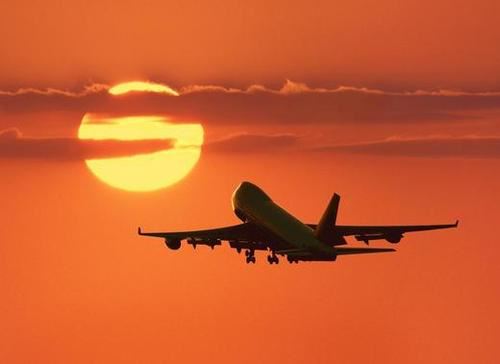The Airlines want you flying upfront during summertime.
Just as the swallows fly to Capistrano in the summer, airlines have traditionally unleashed their best upfront deals during this time. The fact is that during summer months, airlines have too many business class seats (businessmen like to go to the beach with their families) and too few leisure seats in their inventory. To entice leisure travelers to move up to more spacious business and premium economy classes, the airlines up the ante on their sale fares in Business and Premium Economy to free up inventory in the back.
It’s a form of supply-demand prices that the airlines have calculated to a decimal point. The data holds a history of seats that never sell out, and the ultimate goal is to sell every last one.
“An empty seat is like yesterday’s newspaper,” said Nick Fleetwood, managing agent at CookTravel.net. “You might as well wrap fish in it.”
However, demand for seats is up. “The stock market and housing prices are rising, and people feel richer,” Fleetwood said. “Airlines have cut capacity on summer seats, making them more expensive.”
In the past, Business Class summer deals were phenomenal —up to 60 percent off regular fares. In 2002, you could book a roundtrip flight from Los Angeles to Paris for $2,100. In 2005, Boston to Zurich would cost about $2,500, and a Continental Airlines Business Class sale would afford prices like $1,600 roundtrip Newark to Belfast and $2,000 roundtrip Houston to London, says Business Travel Columnist Joe Brancatelli in The Business Journal.
But airlines are taking the stingier route these days.
Los Angeles to Paris roundtrip is nearly double the 2002 price at $3,977, Boston to Zurich roundtrip is $3,000, and since Continental merged with United Airlines, it is now charging $2,790 for Newark to Belfast and $3,480 for Houston to London roundtrip.
What’s the explanation behind the present-day, not-so-compelling fares? Summer hasn’t changed, and neither have the habits of leisure and business travelers. But, jet-fuel prices have risen sharply, and airlines have trimmed capacity to Europe. Also, the industry standard today for Business-Class flat beds are much larger than the reclining seats seen a decade ago.
“Strategies for lowering Business Class airfares to Europe are more difficult. But, airlines are still anxious to discount their published fares,” said Katrina Roberts, a travel agent at CookTravel.net. “It’s just a little harder this summer.”
Roberts, who specializes in travel to Asia, Australia and New Zealand, continued to say, “Asia is a different story. Airlines are more willing to experiment with sale fares.”
The good news is that summer deals still exist. The bad (but not-so-terrible) news is that more of the deals have migrated to premium economy, and some travelers have to buy a tour to qualify for the net fares. Airlines still want to entice people to pay a little more to fly up-front, in the emerging “fourth class,” in order to free up space in the back. The fourth class offers good value for your fare dollar.
And the newest fare development is quite an anomaly: the First Class summer sale. Lufthansa has added an array of discounted fares in First Class, which is not easy feat, considering the airline has more long-haul aircraft equipment with First-Class cabins than any other in the world.
“We have too many empty seats, and there is a market out there [for discounted First Class],” Lufthansa’s Manager of Pricing Coordination Carsten Woldt told Brancatelli. “Will seasonal discounts double our sales? Obviously not. It’s a niche market. The trick is to get you interested.”

 Save up to 60% on Business Class. Call 1-800-435-8776
Save up to 60% on Business Class. Call 1-800-435-8776


Leave A Comment